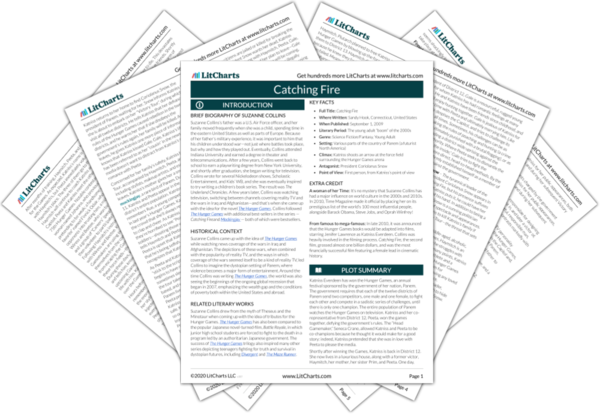Even when Peeta seems to be platonic friends with Katniss, we sense a sexual undercurrent in their behavior. Peeta, for his part, is sensitive and intelligent, as his paintings attest. More to the point, he clearly struggles with the same feelings of guilt and trauma that Katniss has been dealing with. This connects the two, and suggests that Peeta is ideal for Katniss, as he understands exactly what she’s going through. Perhaps it’s symbolic that the train begins to move again after Katniss talks with Peeta—having a sympathetic friend helps Katniss “move forward” with her life.


